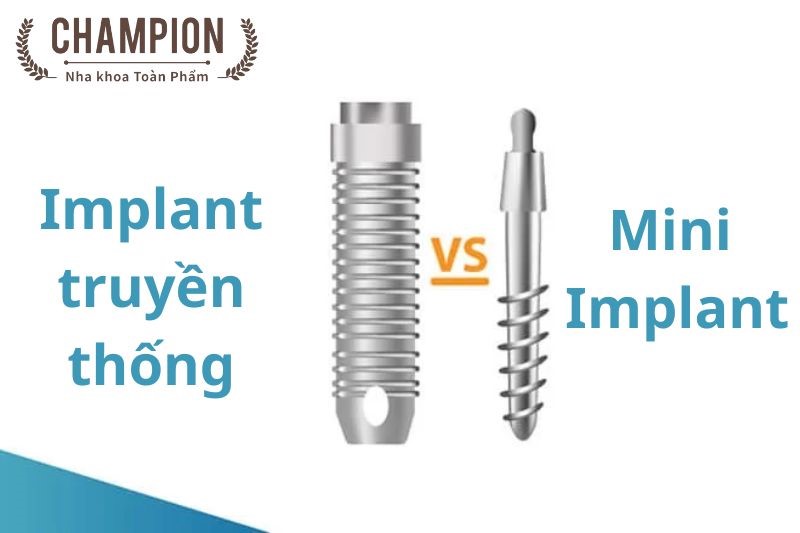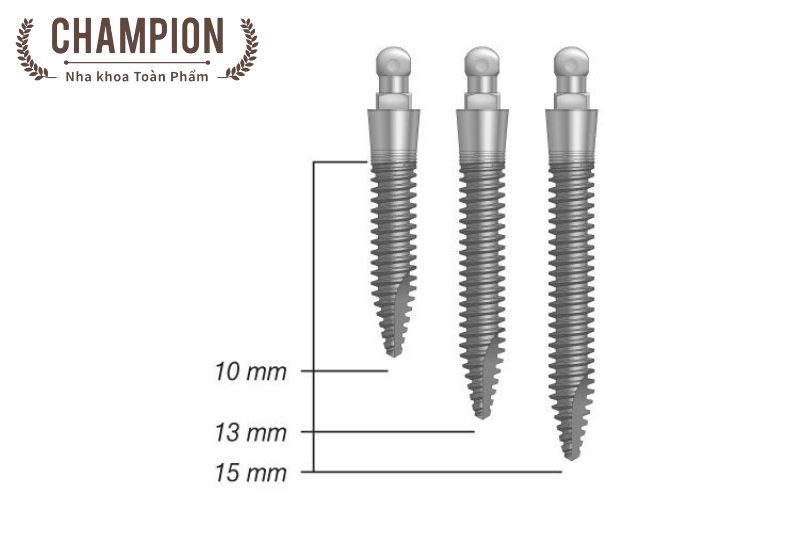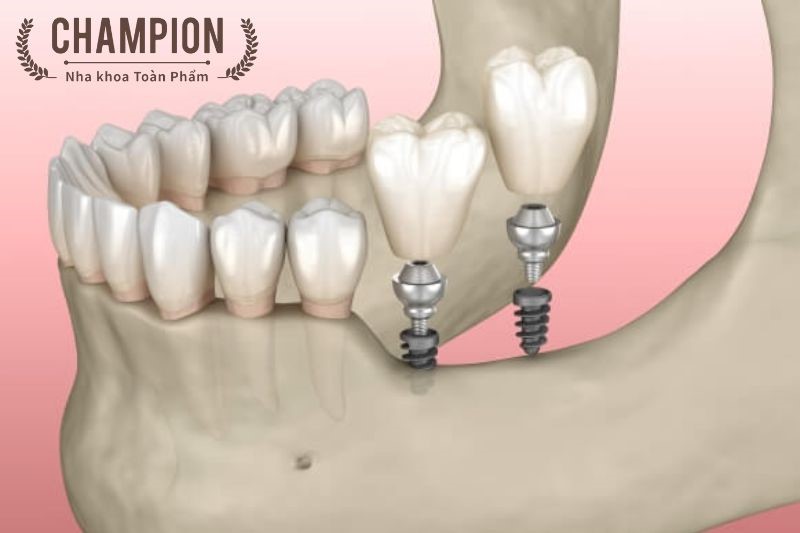Mini dental implants are a popular method for addressing tooth loss. If you are familiar with regular dental implants, then mini implants may not be entirely unfamiliar to you. However, unlike traditional implants, mini implants are smaller in size. This smaller size ensures effectiveness and stability similar to their larger counterparts while being less invasive. Let's explore more about this implant method below.
What are the benefits of mini dental implants?
Mini dental implant placement is a common method for dental restoration. It ensures absolute chewing efficiency, allowing patients to confidently use their implanted teeth just like natural ones.
Mini implants can be used to replace a single missing tooth, multiple teeth, or to stabilize dentures. The benefits of mini implants include:
- Minimally invasive surgery: Mini implant placement is performed under local anesthesia, resulting in significantly less invasiveness compared to traditional dental implants.
- Faster recovery time: The small size and minimal invasive procedure used for mini dental implant placement contribute to a quicker recovery time.
- Lower cost: Mini dental implants are generally more cost-effective compared to traditional implant placement.
- No need for additional bone grafting: Some patients with bone loss may require additional grafting for traditional implant placement. However, mini implants can be placed without the need for bone grafting in such cases.
- Quicker results: Mini implants stabilize rapidly with the gums and jawbone, allowing for faster prosthetic attachment and completion of the restoration process.
- Less discomfort for placement and repairs: The small size of mini implants makes both the placement and repair procedures less painful compared to traditional dental implants.
- Suitable for small tooth spaces: Mini implant placement is particularly suitable for small, narrow tooth spaces.

Individuals who are not suitable for mini dental implants
Mini dental implant placement is not suitable for everyone, especially children or anyone with an underdeveloped mouth. This is because the surrounding bone may encase the implant as the bone develops, potentially causing instability and long-term damage. Here are some conditions and diseases that are not recommended for mini implant placement:
- Individuals with bad habits like teeth grinding.
- Patients with conditions such as diabetes or blood disorders that affect clotting and increase the risk of infection.
- Patients with gum and periodontal diseases, such as gingivitis or periodontitis, require periodontal treatment to ensure healthy gums before proceeding with the implantation process.
- Patients who are smokers or have a smoking addiction.
Mini implant placement does not require as much jawbone density as traditional implant placement. However, a certain level of bone density is still required. This means that they may not be effective if you have severe tooth decay and significant bone loss. Additionally, if you have gum and periodontal diseases, implant placement is not encouraged.
It is important to consult with a dental professional to determine if mini dental implants are suitable for your specific dental condition and overall oral health.

>> See more: Dental Veneers or Braces? Which Is Best?
Recovery process after mini dental implant placement
Recovery from mini dental implant placement is generally quick and straightforward. Most people find that they can return to their regular activities within 1 or 2 days after undergoing the mini dental implant procedure. In many cases, you may not need a follow-up appointment.
You may experience some pain and discomfort after the procedure. Applying ice packs or taking pain medication can help manage the pain. In some cases, your dentist may prescribe medication to help control the pain.
Limit consumption of hard or sticky foods following the mini implant placement procedure. This will reduce the risk of loosening or dislodging the healing tissues.
Stick to a soft or liquid diet, such as soups, smoothies, or nutritious porridge, during your recovery. Your dentist can advise you on when you can gradually resume a varied diet.
If you experience any unusual symptoms after the surgery, such as severe or prolonged pain, loose or falling-out teeth, or numbness in the jaw area, consult your dentist or other healthcare professionals.

Conclusion
You should care for your mini dental implants just as you would care for your natural teeth. Without proper oral hygiene, they can be prone to decay or cavities.
It is important to brush your teeth, use dental floss, and schedule regular dental check-ups to ensure the integrity of your mini dental implants. As long as they are well-maintained, mini dental implants offer a permanent solution for tooth loss.
Champion Dental Clinic takes pride in being a reputable dental clinic that provides excellent support for mini dental implant placement. Please contact us directly using the addresses below for further assistance as soon as possible.
Vietnamese & English: (028) 5411-2295
中文: (028) 5411-2297 172 Nguyen Luong Bang, Tan Phu Ward, District 7, Ho Chi Minh City.
Fanpage: Champion Dental Clinic 牙科診所
Zalo: Champion Dental Clinic
Youtube: Champion Dental Clinic 牙科診所
 Champion Dental Clinic
Champion Dental Clinic



